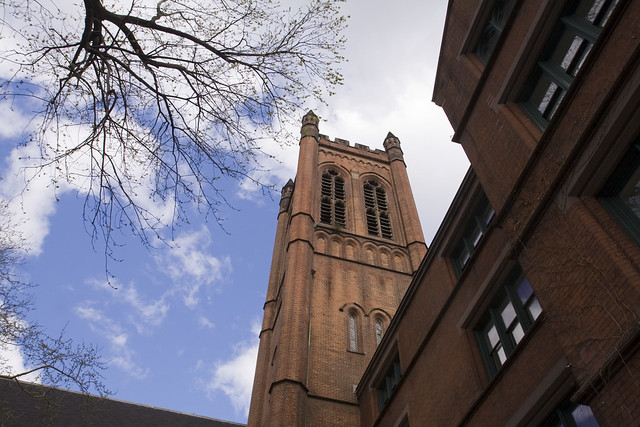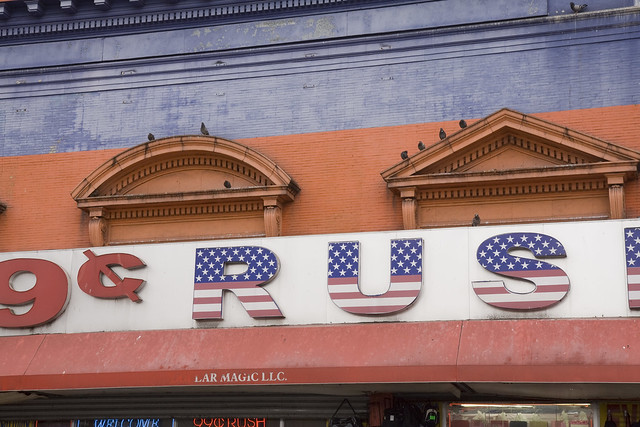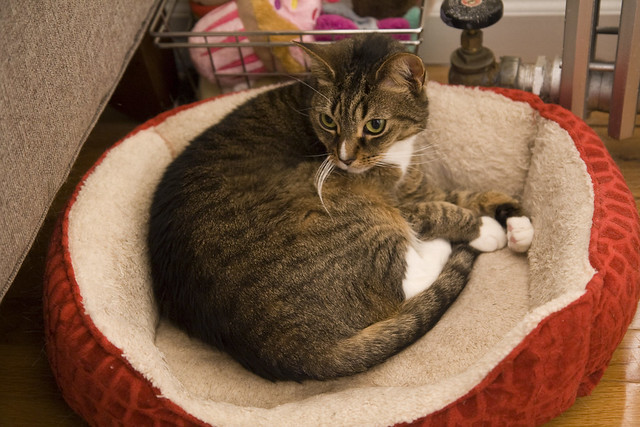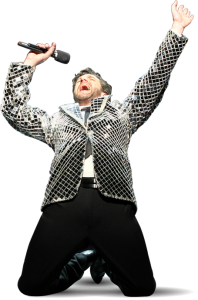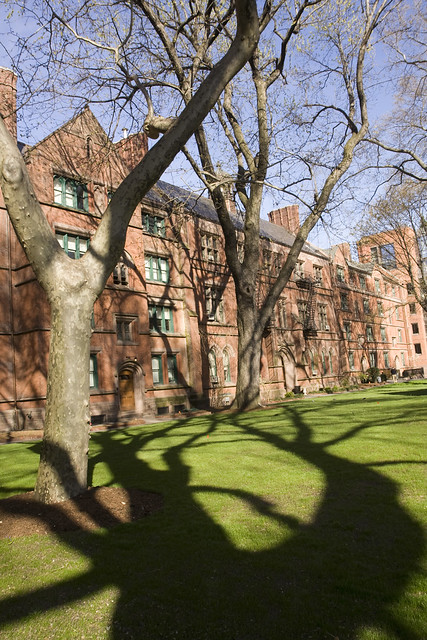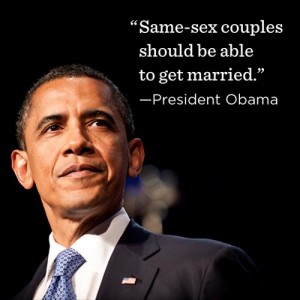 So it seems that during my Church History Final Exam (covering the Oxford movement through the 1960s), President Obama came out and finally announced his support for marriage equality. I’m glad he did. He’s not leading a charge nor is he launching a campaign but he did throw his support to marriage equality (in name at least). And I consider that a big step. It does make the campaign’s behavior after Biden’s “snafu” on Sunday a little hairy – and I, personally, think Biden caused Obama to show his hand earlier than he originally planned. But I’m glad it is out there, done, and I can watch as my facebook newsfeed is covered in “YAY OBAMA” or “BOO OBAMA” comments. It’ll keep the morning lively while I prepare a sermon and study for my NT oral exam.
So it seems that during my Church History Final Exam (covering the Oxford movement through the 1960s), President Obama came out and finally announced his support for marriage equality. I’m glad he did. He’s not leading a charge nor is he launching a campaign but he did throw his support to marriage equality (in name at least). And I consider that a big step. It does make the campaign’s behavior after Biden’s “snafu” on Sunday a little hairy – and I, personally, think Biden caused Obama to show his hand earlier than he originally planned. But I’m glad it is out there, done, and I can watch as my facebook newsfeed is covered in “YAY OBAMA” or “BOO OBAMA” comments. It’ll keep the morning lively while I prepare a sermon and study for my NT oral exam.
After my exam yesterday, the Lutheran professor on campus threw together a lutheran/campus-ministry/taize style liturgy for a small group of Lutherans and supporters on campus. We met in the practice chapel (which is where they keep Jesus until he’s eaten), formed a small circle, and went through a lovely service. I felt bad because I forgot to bring an ELW while one of my episcopal buddies showed up with one (he’s a better Lutheran than me I bet). I’ll admit that it was nice doing a Lutheran Christian liturgy at seminary. I got a little emotional (cuz of some events coming up and, well, I was just plain exhausted after my exam). It was great. I hope they make it into a regular event during the coming year.
Afterwards, two buddies of mine and I went to a local diner to unwind and have dinner. While there (we all had breakfast for dinner mmmmm), a portly, balding, unkept middle aged man came up to us. He had a notepad in hand, looked a tad buzzed, and just started talking. It took about five minutes to realize that this guy claimed to be a reporter and was in Chelsea looking for gays to comment on Obama’s announcement. The reason why it took so long to find this out is because he would not shut up about not being able to find gays in Chelsea. He kept talking to straight guys! Even muscle-bound guys! They were straight too! Can you believe it? His editors was “on his ass” for not getting quotes from the gays. The whole spectacle was incredibly uncomfortable, and really ,really strange. One of my companions was gay, which made the reporter a tad excited, and he brushed me and my other friend off because “I’ve already talked to too many straight guys.” My gay friend, however, didn’t want his name used so the reporter was all “well, I can’t use you!” and shut down the conversation. We suggested that he visit the local club with go-go boys (Rawhide) as we were sure he’d find what he was looking for there. It was honestly one of the weirdest conversations I’ve been privy to in a long time. It didn’t seem real, nor did he seem like a real journalist. Or maybe I just haven’t been interviewed by enough journalists to know how things are done. Either way, if he had stopped talking for a few minutes, and discovered we were all seminarians, he might have taken our quotes more seriously. But, alas, my name in the papers was not to be. Oh well.
